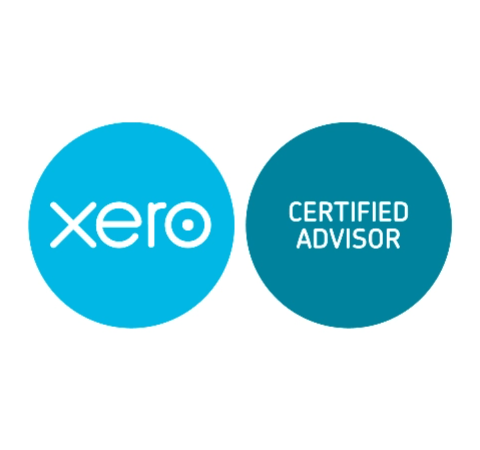Employees and NICs
From 6 April 2024 the main rate of Class 1 employee NICs is 8%. The employer rate is 13.8%.
The government announced that it will increase the employer rate from 13.8% to 15% from 6 April 2025.
The Secondary Threshold is the point at which employers become liable to pay NICs on an individual employee’s earnings, and is currently set at £9,100 a year. The government will reduce the Secondary Threshold to £5,000 a year from 6 April 2025 until 6 April 2028, and then increase it by Consumer Price Index (CPI) thereafter.
The Employment Allowance currently allows businesses with employer NICs bills of £100,000 or less in the previous tax year to deduct £5,000 from their employer NICs bill. From 6 April 2025 the government will increase the Employment Allowance from £5,000 to £10,500, and remove the £100,000 threshold for eligibility, expanding this to all eligible employers with employer NIC bills.
The self-employed and NICs
From 6 April 2024 the rates of Class 4 self-employed NICs are 6% and 2%. These rates remain the same from 6 April 2025.
For Class 2 NICs from 6 April 2024:
Other changes for 2025/26
The government will increase the Lower Earnings Limit (LEL) and the Small Profits Threshold (SPT) by the September 2024 CPI rate of 1.7% from 2025/26. For those paying voluntarily, the government will also increase Class 2 and Class 3 NICs by 1.7% in 2025/26.
The LEL will be £6,500 per annum (£125 per week) and the SPT will be £6,845 per annum. The main Class 2 rate will be £3.50 per week and the Class 3 rate will be £17.75 per week.
Employer NICs relief for veterans
The government is extending the employer NICs relief for employers hiring qualifying veterans for a further year from 6 April 2025 until 5 April 2026.
This means that businesses will continue to pay no employer NICs up to annual earnings of the Veterans Upper Secondary Threshold of £50,270 for the first year of a veteran’s employment in a civilian role.
The government has announced increased rates of the National Living Wage (NLW) and National Minimum Wage (NMW) which will come into force from 1 April 2025. The rates which will apply are as follows:
| NLW | 18-20 | 16-17 | Apprentices | |
| From 1 April 2025 | £12.21 | £10.00 | £7.55 | £7.55 |
The apprenticeship rate applies to apprentices under 19 or 19 and over in the first year of apprenticeship. The NLW applies to those aged 21 and over.
For an NLW worker working 37.5 hours per week, the increases announced today will increase their annual gross pay by £1,505.54 and their monthly gross pay by £125.46.
The rates of tax for company cars are amended for 2025/26:
The government has confirmed increases to the benefit in kind rates for company cars for tax years up to and including 2029/30.
Car fuel benefit charge
The government will uprate the car fuel benefit charge by CPI from 6 April 2025.
Treatment of double cab pick-up vehicles
The government will treat double cab pick-up vehicles (DCPUs) with a payload of one tonne or more as cars for certain tax purposes.
From 1 April 2025 for Corporation Tax, and 6 April 2025 for Income Tax, DCPUs will be treated as cars for the purposes of capital allowances, benefits in kind and some deductions from business profits.
The existing capital allowances treatment will apply to those who purchase DCPUs before April 2025. Transitional benefit in kind arrangements will apply for employers that have purchased, leased, or ordered a DCPU before 6 April 2025. They will be able to use the previous treatment, until the earlier of disposal, lease expiry, or 5 April 2029.
The government will uprate the Van Benefit Charge and the Van Fuel Benefit Charges by CPI from 6 April 2025.
The government confirms that the use of payroll software to report and pay tax on benefits in kind will become mandatory, in phases, from April 2026. This will apply to income tax and Class 1A NICs.
To tackle the significant levels of tax avoidance and fraud in the umbrella company market, the government will make recruitment agencies responsible for accounting for PAYE on payments made to workers that are supplied via umbrella companies.
Where there is no agency, the responsibility will fall to the end client business.
This will take effect from April 2026. The measure will protect workers from large, unexpected tax bills caused by unscrupulous behaviour from non-compliant umbrella companies.
The government will publish draft legislation relating to loopholes in car ownership arrangements, through which an employer or a third party sells a car to an employee, often via a loan with no repayment terms and negligible interest, then buys it back after a short period.
This arrangement means those benefiting don’t pay company car tax, which other employees pay, and so this measure will seek to level the playing field.
The changes will take effect from 6 April 2026.
The government is introducing a package of reforms to the taxation of Employee Ownership Trusts and Employee Benefit Trusts.
These reforms will prevent opportunities for abuse, ensuring that the regimes remain focused on encouraging employee ownership and rewarding employees.
The changes will take effect from 30 October 2024.
The government will legislate to clarify the Income Tax treatment of Statutory Neonatal Care Pay. This will ensure the payment is liable to Income Tax and ensure consistency with the tax treatment of other statutory maternity and paternity pay schemes.
We are members of the ICAEW (The Institute of Chartered Accountants in England & Wales). Our team are also trained and qualified on the most popular accounting systems. Palmer, Riley & Co is a Silver Partner of Xero and are Certified ProAdvisors for Quickbooks.




